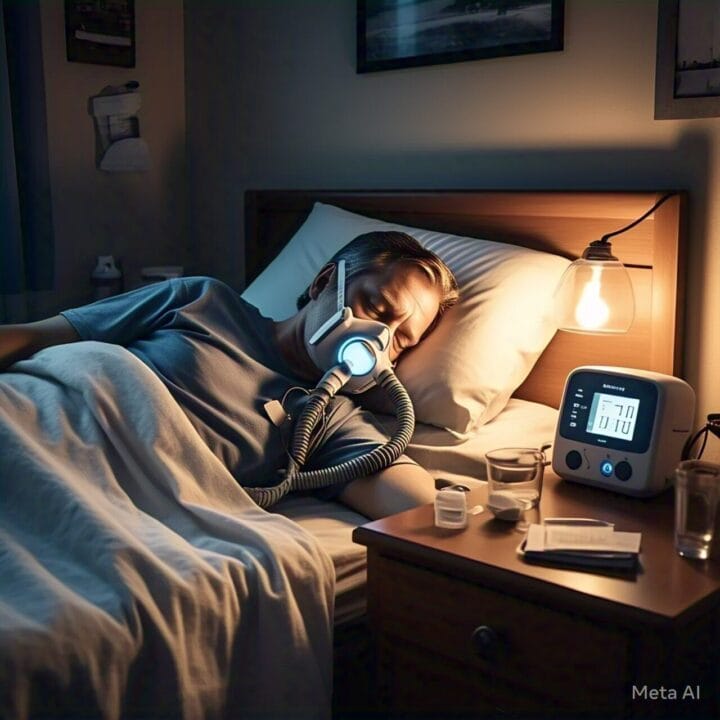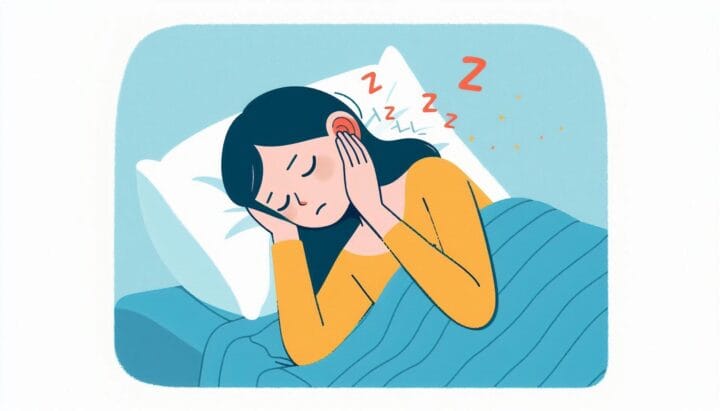Is Your Snoring a Sign of Sleep Apnea? Here’s How to Tell
Table of Contents
Snoring a sign of sleep apnea?
Is Your Snoring a Sign of Sleep Apnea? Here’s How to Tell
Snoring. It’s that noisy nighttime habit that can drive partners crazy and leave you feeling less than refreshed in the morning. But could your snoring be more than just an annoyance? It might be a sign of sleep apnea, a serious sleep disorder. Let’s break down how you can tell if your snoring is just run-of-the-mill or something that needs medical attention.
Snoring vs. Sleep Apnea: What’s the Difference?
Not all snoring is created equal. Sometimes it’s just a harmless (if annoying) quirk. Other times, it’s a red flag for sleep apnea. Here’s the key difference:
- Regular snoring: Your airway is partially blocked, causing vibrations as you breathe.
- Sleep apnea: Your airway becomes completely blocked, causing you to stop breathing for short periods.
Common Signs Your Snoring Might Be Sleep Apnea
Nighttime Symptoms
- Loud, persistent snoring: We’re talking chainsaw-level noise here, not just gentle purring.
- Gasping or choking sounds: Your partner might notice you making these sounds in your sleep.
- Restless sleep: Tossing and turning all night? It could be a sign.
- Frequent bathroom trips: Waking up to pee multiple times a night is common with sleep apnea.
Daytime Symptoms
- Excessive daytime sleepiness: Feeling like you could nod off anytime, anywhere? That’s not normal.
- Morning headaches: Waking up with a pounding head can be from lack of oxygen.
- Irritability or mood changes: Sleep deprivation can make anyone cranky.
- Difficulty concentrating: Brain fog and forgetfulness are common complaints.
Risk Factors: Are You More Likely to Have Sleep Apnea?
Some people are more prone to sleep apnea than others. These factors increase your risk:
- Being overweight or obese: Extra tissue in the throat can block your airway.
- Having a thick neck: A neck circumference over 17 inches for men or 16 inches for women is a risk factor.
- Being male: Men are 2-3 times more likely to have sleep apnea than women.
- Age: Risk increases as you get older.
- Family history: Sleep apnea can run in families.
- Smoking: This irritates and inflames the airways.
- Alcohol use: Drinking relaxes throat muscles, making obstruction more likely.
The STOP-BANG Questionnaire: A Quick Self-Check
Healthcare providers often use the STOP-BANG questionnaire to screen for sleep apnea risk. Here’s a simplified version you can try at home:
- Snoring: Do you snore loudly?
- Tired: Do you often feel tired during the day?
- Observed: Has anyone seen you stop breathing while asleep?
- Pressure: Do you have high blood pressure?
- BMI: Is your body mass index over 35?
- Age: Are you over 50?
- Neck: Is your neck circumference large?
- Gender: Are you male?
The more “yes” answers, the higher your risk of sleep apnea.
When to See a Doctor
If you’re experiencing multiple symptoms or have several risk factors, it’s time to talk to a healthcare provider. They might recommend:
- Sleep study: This is the gold standard for diagnosing sleep apnea. You’ll spend a night in a sleep lab hooked up to monitors.
- Home sleep test: A simpler version you can do in your own bed.
- Physical exam: Your doctor will check your throat, nose, and mouth for potential obstructions.
Treatment Options: There’s Hope for Better Sleep
If you do have sleep apnea, don’t worry! There are effective treatments available:
- CPAP machine: This device delivers constant air pressure to keep your airway open.
- Oral appliances: Custom-made mouthpieces can help reposition your jaw.
- Lifestyle changes: Losing weight, quitting smoking, and reducing alcohol intake can make a big difference.
- Surgery: In some cases, removing excess tissue or correcting structural problems can help.
Conclusion: Don’t Ignore the Signs
Snoring might seem like just an annoyance, but it could be a sign of something more serious. If you’re concerned about your snoring or experiencing any of the symptoms we’ve discussed, don’t hesitate to reach out to a healthcare provider. Getting proper treatment for sleep apnea can dramatically improve your quality of life, energy levels, and overall health.
Take action today: Keep a sleep diary for a week, noting your snoring patterns and daytime symptoms. Then, schedule an appointment with your doctor to discuss your concerns. Your body (and your bed partner) will thank you!
FAQs
- Can children have sleep apnea?
Yes, children can develop sleep apnea, often due to enlarged tonsils or adenoids. Symptoms may include snoring, bedwetting, and behavioral issues. - Will losing weight cure my sleep apnea?
Weight loss can significantly improve sleep apnea symptoms, but it may not completely eliminate the condition in all cases. - Is sleep apnea dangerous if left untreated?
Untreated sleep apnea can increase your risk of serious health problems like high blood pressure, heart disease, and stroke. - Can I use over-the-counter snoring aids instead of seeing a doctor?
While some snoring aids may help reduce noise, they won’t treat underlying sleep apnea. It’s important to get a proper diagnosis. - How long does it take to adjust to CPAP therapy?
Most people adjust to CPAP within a few weeks, but it can take up to 6 months for some. Patience and persistence are key. - Can sleep apnea go away on its own?
Sleep apnea rarely resolves without treatment. However, lifestyle changes can sometimes improve mild cases. - Is snoring always a sign of sleep apnea?
Not all snoring indicates sleep apnea, but loud, persistent snoring combined with other symptoms warrants medical evaluation.
Citations:
[1] https://www.mayoclinic.org/diseases-conditions/sleep-apnea/diagnosis-treatment/drc-20377636
[2] https://www.hopkinsmedicine.org/health/conditions-and-diseases/snoring
[3] https://www.hopkinsmedicine.org/health/conditions-and-diseases/obstructive-sleep-apnea
[4] https://www.mountsinai.org/care/ent/services/sleep-surgery/diagnosis-testing
[5] https://muscaroandmartinidentistry.com/how-to-tell-if-you-have-sleep-apnea/
[6] https://my.clevelandclinic.org/health/diseases/15580-snoring
[7] https://www.sleepfoundation.org/snoring/how-to-stop-snoring
[8] https://www.ncbi.nlm.nih.gov/books/NBK459252/














Post Comment